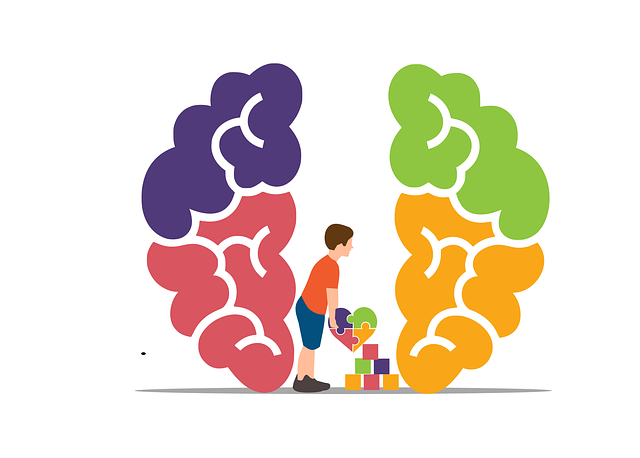Englewood Family Counseling Therapy (EFCT) tackles substance abuse through a comprehensive approach that addresses mental health, family dynamics, and community support. They emphasize understanding underlying causes like mental illnesses and trauma, destigmatize mental health issues, and promote early intervention. EFCT's holistic model incorporates compassion cultivation and targeted outreach programs in schools to prevent substance misuse, while involving families in counseling sessions for tailored support. By fostering strong social connections and reducing stigma, they create a supportive network essential for long-term recovery.
Substance abuse poses significant risks to individuals, families, and communities. Understanding these dangers is the first step towards prevention. This article explores comprehensive risk reduction strategies, highlighting the role of holistic approaches like Englewood Family Counseling Therapy. We delve into effective methods for early intervention, prevention, and building support systems crucial for long-term recovery. By examining these tactics, we aim to empower individuals and families facing substance abuse challenges.
- Understanding Substance Abuse and Its Risks
- Englewood Family Counseling Therapy: A Holistic Approach
- Strategies for Risk Reduction: Prevention and Early Intervention
- Support Systems and Ongoing Care for Long-Term Recovery
Understanding Substance Abuse and Its Risks

Substance abuse refers to the harmful use of drugs or alcohol, leading to negative consequences for an individual’s health, relationships, and overall well-being. It’s a complex issue often intertwined with underlying mental illnesses, trauma, or stress. Englewood Family Counseling Therapy highlights that understanding these risk factors is crucial in developing effective strategies for prevention and recovery. Substance abuse disorders can range from mild to severe, impacting not just the user but also their family and community.
The dangers of substance abuse extend beyond physical health issues; they contribute to social and economic problems as well. The Mental Illness Stigma Reduction Efforts emphasize the need to destigmatize mental health struggles, which are often linked to substance misuse. By promoting awareness and fostering supportive environments, communities can encourage individuals to seek help for both mental illness and addiction. Additionally, Self-Care Practices and Burnout Prevention Strategies for Healthcare Providers play a vital role in early intervention and long-term recovery support.
Englewood Family Counseling Therapy: A Holistic Approach

Englewood Family Counseling Therapy offers a holistic approach to substance abuse prevention and recovery, focusing on the interconnectedness of family dynamics and individual well-being. This therapy model recognizes that addiction doesn’t occur in a vacuum; it’s often rooted in underlying issues within the family system. By addressing these systemic problems, the program aims to foster healthier relationships and empower families with effective coping mechanisms.
The therapy incorporates compassion cultivation practices and empathy-building strategies to create a safe space for open communication. Through this process, family members learn to understand and support each other’s emotional needs, particularly in managing moods and stress. By teaching these essential skills, Englewood Family Counseling Therapy helps break the cycle of addiction, promoting long-term recovery and enhancing overall mental health within the family unit.
Strategies for Risk Reduction: Prevention and Early Intervention

Early intervention and prevention are key strategies in mitigating the risks associated with substance abuse. Englewood Family Counseling Therapy (EFCT) emphasizes the importance of identifying at-risk individuals before problematic behaviors escalate. This can involve targeted outreach programs within schools, community centers, or high-risk neighborhoods to educate youth about substance misuse and its consequences. EFCT also promotes family involvement through counseling sessions that teach parents and caregivers effective communication strategies, stress reduction methods, and ways to recognize early signs of substance abuse in their children.
Implementing a Community Outreach Program can significantly reduce risks by providing resources and support systems for vulnerable populations. Training healthcare providers on cultural competency ensures that individuals from diverse backgrounds receive culturally sensitive care and treatment for substance abuse disorders. By combining these approaches, EFCT aims to foster a proactive environment where substance abuse is prevented or addressed early, leading to better outcomes for individuals and communities as a whole.
Support Systems and Ongoing Care for Long-Term Recovery

Building a robust support system is integral to long-term recovery from substance abuse. Englewood Family Counseling Therapy emphasizes the power of community and family involvement in fostering sustainable change. This ongoing care approach recognizes that healing is not just an individual journey but one deeply influenced by social connections. By integrating loved ones into the therapy process, individuals in recovery gain the strength and motivation needed to maintain their sobriety.
Moreover, addressing cultural sensitivity in mental healthcare practice plays a significant role in this context. Understanding and respecting diverse backgrounds ensures tailored support that respects individual beliefs and experiences. Conflict resolution techniques learned through counseling can further enhance these relationships, creating a safe and supportive network essential for managing triggers and challenges associated with long-term recovery. Additionally, mental illness stigma reduction efforts contribute to breaking down barriers, encouraging open communication, and promoting understanding within these support systems.
In addressing substance abuse, a comprehensive approach is essential. From understanding the risks to implementing strategies for risk reduction and fostering support systems, each step plays a vital role in an individual’s journey to recovery. The holistic methods offered by Englewood Family Counseling Therapy provide a proven path forward. By combining prevention, early intervention, and long-term care, individuals can navigate the challenges of substance abuse and achieve lasting recovery, transforming their lives and communities for the better.














